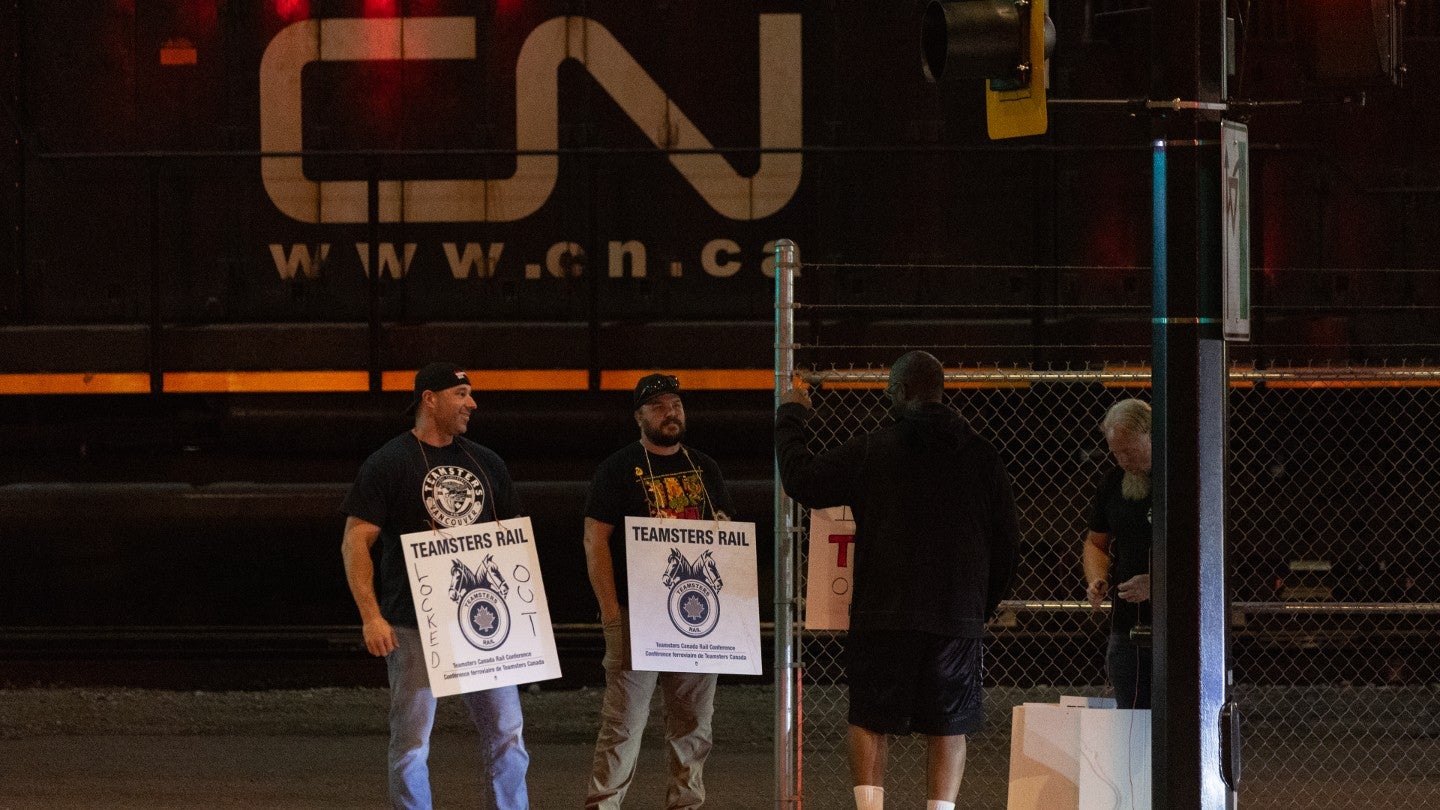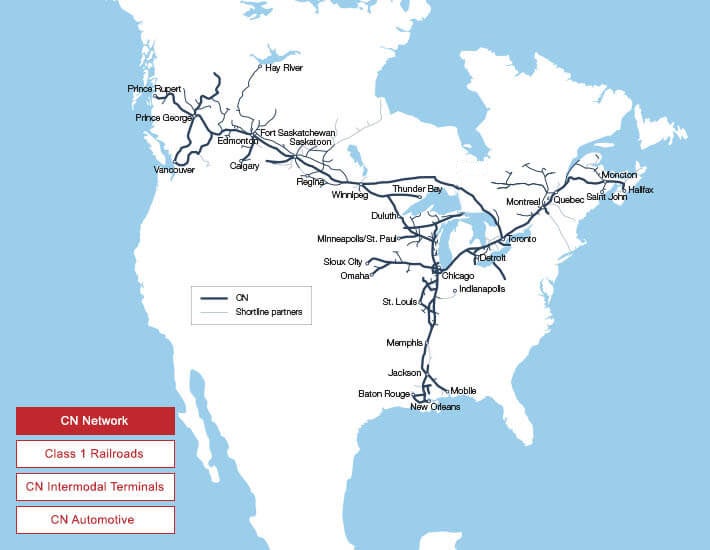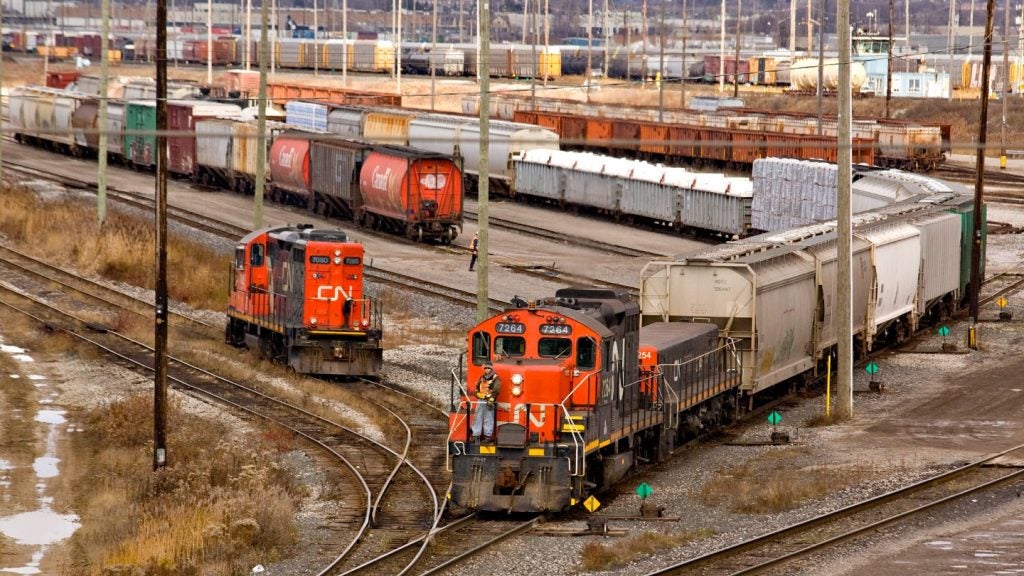


Canada’s two largest rail freight providers have locked out 9,300 workers after talks with the Teamsters Canada Rail Conference union fell through on 22 August, blocking key supply chains for North American ports, carmakers, mining, agriculture and other businesses.
The union voted in favour of industrial action over employee working conditions after unsuccessful talks with Canadian National Railway (CN) and Canadian Pacific Kansas City (CPKC), which account for approximately 80% of Canada’s rail network.
These North American supply lines carry C$1bn ($740m) per day in trade. Canada’s economy is set to lose C$341m ($251m) per day, according to ratings agency Moody’s estimate.

On 20 August, the Canadian Chamber of Commerce and the US Chamber of Commerce issued a joint statement calling on the Ottawa government to act to avert a “devastating” rail stoppage. It warned of the impact on “Canadian business and families, as well as the US economy”, where 75% of all Canadian exports end up.
While shipping routes have already been used to divert certain Canadian goods to the US ahead of the strike, commodities including grain, fertiliser and timber cannot be moved onto trucks and need rail for transportation.
The Mining Association of Canada (MAC) expressed serious concern about the damaging impacts of the “first-ever, simultaneous halt in service” from Canada’s two Class I Railways, saying it “could not come at a worse time.”
Access the most comprehensive Company Profiles
on the market, powered by GlobalData. Save hours of research. Gain competitive edge.

Company Profile – free
sample
Your download email will arrive shortly
We are confident about the
unique
quality of our Company Profiles. However, we want you to make the most
beneficial
decision for your business, so we offer a free sample that you can download by
submitting the below form
By GlobalData
“The mining industry is the Canadian rail system’s most significant customer, and the majority of our products are shipped to international customers,” said Pierre Gratton, MAC’s president and CEO.
“Work stoppages bring immense additional operational costs to businesses and reduce confidence in Canada as a destination for investment for supply-chain reliant businesses, such as mining.”
In 2022, crude and processed minerals made up more than 56% of total freight volume in Canada, with some 283.6 million tonnes shipped in total, according to MAC.
Supply of dry bulk commodities such as iron ore, cement, salt, coal and potash will be disrupted.
More than 30 US food and agriculture groups have also penned a letter to Canadian Prime Minister Justin Trudeau urging action. The letter said road transport is uneconomical for long-haul crop shipments, pointing out that agriculture ships more than 25,000 railcars per week, but this figure will go to zero during a strike or lockout.
Strikes across the Canadian rail network last year disrupted C$10.7bn ($8bn) in trade, but today marks the first time in decades that employees from both major rail carriers have walked out simultaneously.
The Teamsters Canada Rail Conference said it had put forward multiple settlement offers over the past few days, none of which the Canadian rail carriers accepted. The union’s main demands are fairer scheduling and mitigated worker fatigue.
“Throughout this process, CN and CPKC have shown themselves willing to compromise rail safety and tear families apart to earn an extra buck,” said Paul Boucher, president of Teamsters Canada Rail Conference.
“The railroads don’t care about farmers, small businesses, supply chains, or their own employees. Their sole focus is boosting their bottom line, even if it means jeopardising the entire economy.”

CPKC and CN said the lockout was decided after the rail workers’ union had not responded to the latest offer by the set deadline of 00:01 ET on 22 August.
CPKC called the union’s demands “unrealistic”, saying they would “fundamentally impair the railway’s ability to serve our customers with a reliable and cost-competitive transportation service”.
CN said it “had no choice but to finalise a safe and orderly shutdown and proceed with a lockout”.
Further disruption in Canadian transport is also on the horizon. A union of 730 dock foremen in British Columbia, home to Canada’s busiest port in Vancouver, are also threatening to strike. The International Longshore and Warehouse Union Local 514 is expected to vote on industrial action in the coming days, adding US East Coast disruption to the transport industry woes.